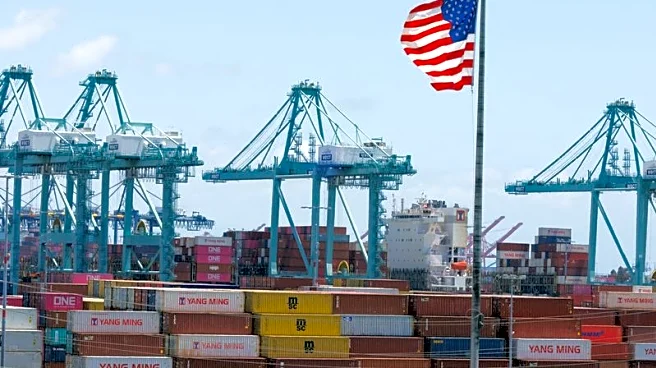Rapid Read • 8 min read
Off-price retailers, including TJX, the parent company of T.J. Maxx and Marshalls, and Ross Stores, are preparing to report their second-quarter earnings this week. These companies are expected to benefit from changing consumer behavior influenced by economic factors such as inflation and tariffs. Recent inflation data suggests that brands are passing higher costs onto consumers, leading to a more pessimistic outlook on the economy and personal finances. As a result, consumers are increasingly turning to off-price retailers for affordable fashion options. Despite disappointing first-quarter results, early data indicates a positive trend for off-price retailers, with increased store traffic reported by Placer.ai. Visits to T.J. Maxx rose by 8.3% in July compared to the previous year, while Ross and Burlington also saw significant increases.
AD
The shift towards off-price retailing highlights the impact of economic pressures on consumer spending habits. As inflation and tariffs affect prices, consumers are likely to seek more cost-effective shopping options, benefiting off-price retailers. This trend could lead to increased market share for companies like TJX and Ross Stores, while traditional department stores such as Macy's and Kohl's may experience declines in customer visits. The growing preference for off-price shopping reflects broader economic challenges and consumer adaptation to rising costs. This shift could have long-term implications for the retail industry, influencing pricing strategies and inventory sourcing.
As TJX and Ross Stores prepare to release their earnings reports, stakeholders will be closely monitoring consumer spending patterns and the companies' financial performance. The results will provide insights into whether the increased store traffic translates into higher sales and revenue. Additionally, the companies may need to adjust their sourcing strategies to mitigate the impact of tariffs and maintain competitive pricing. The retail industry will continue to watch for further shifts in consumer behavior as economic conditions evolve, potentially leading to strategic changes in marketing and inventory management.
The rise of off-price retailing may also prompt ethical considerations regarding consumerism and sustainability. As consumers prioritize affordability, there may be increased demand for fast fashion, which can have environmental and social implications. Retailers may face pressure to balance cost-effective offerings with sustainable practices, potentially influencing industry standards and consumer expectations. The trend could also affect cultural perceptions of value and quality, as shoppers navigate the trade-offs between price and product attributes.
AD
More Stories You Might Enjoy











